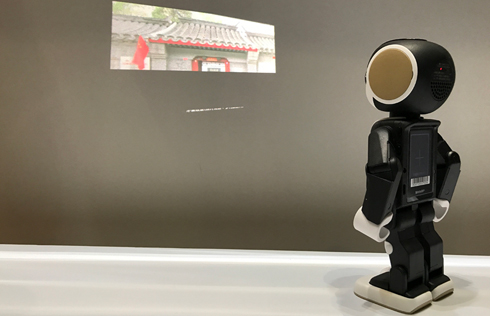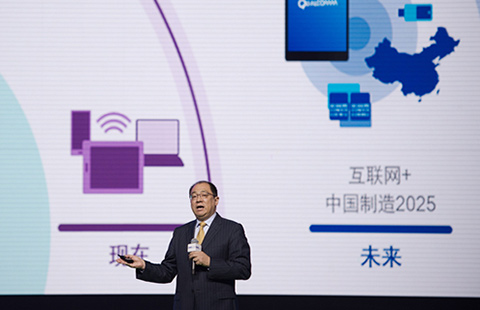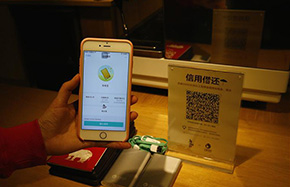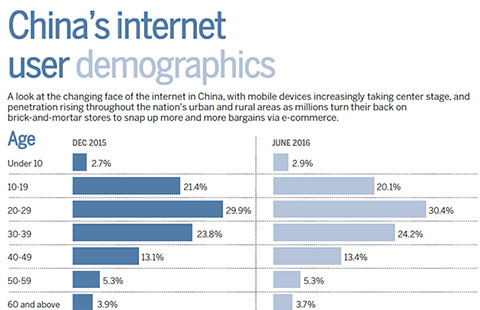Xiaolong Bus app aims to supplement local public transport
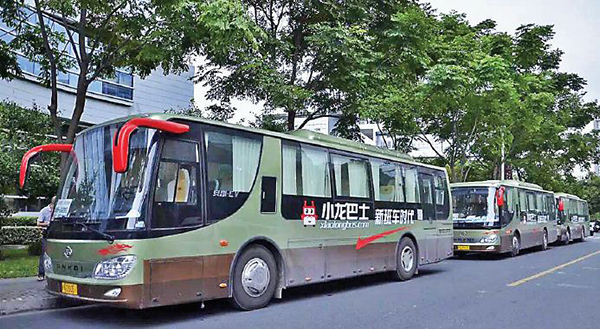 |
|
Xiaolong Bus provides information services for smart transportation. [Photo provided to China Daily] |
Taking a commuter bus to work has always been the norm for white-collar workers. But now, a new startup in Shanghai has been working to provide more options for inter-city commuters.
Xiaolong Bus is a comprehensive information service platform for smart transportation, applying professional IT data analysis and computing technology services.
The use of big data analysis allows route planning to be more targeted, efficient and scientific.
Passengers can follow the WeChat account of Xiaolong Bus and input their daily routes for work, which are sent to a database.
The system will then intelligently carry out feasibility analysis, plan routes and stations, arrange vehicles and drivers and open lines according to users' needs.
After the opening of the line, the system can collect and analyze realtime data, track the running state of each vehicle, and adjust the routes according to the requirements.
Xiong Guanghui, CEO of Shanghai BravoFor Information Technology Co Ltd, the developer of Xiaolong Bus, said the Shanghai market has its own characteristics compared with other areas such as Shenzhen and Beijing.
Shanghai's public bus and metro lines are well developed, which means it can generally meet the demands of local residents. Xiaolong Bus in Shanghai works to supplement the current transportation tools. It also means the routes' design must be more creative, Xiong said.
Xiaolong Bus came into operation in May 2015 and has now opened 72 lines, which mainly connect communities and work locations.
The occupancy of the most popular lines exceeds 80 percent. It usually takes about one to two months for a new line to become popular, according to Xiong.
Xiaolong buses have been running in business areas such as Zhangjiang, Caohejing, Jinqiao, Lujiazui, Minhang and Wujiaochang. The Xiaolong Bus has become increasingly popular among white collar workers and has recently gained a large number of users.
So far, Xiaolong Bus has established strategic partnerships with a number of qualified bus providers. About 80 percent of vehicles are green buses.
The Xiaolong Bus also provides management systems concerning suppliers, passengers and vehicle scheduling to better understand and monitor the dynamics of the shuttle bus operators with comprehensive operation reports.
As an integrated information service platform for smart transportation, Xiaolong Bus has been actively working to dig out more shuttle bus markets, such as services for hotels, universities, communities, tourism sites and conferences.
The internet-based bus sharing platform is expected to see a golden era of growth as major Chinese cities consider issuing new policies to regulate online chauffeured car-hailing platforms, industry insiders said.
According to regulation drafts released in Beijing, Shanghai and Shenzhen last month for soliciting public opinions, vehicles must have a wheelbase longer than 2.7 meters for petrol cars, or 2.65 meters for new energy vehicles.
The rapid development of online chauffeured car hailing businesses will slow down in the coming years, industrial insiders said.
At the same time, the internet-based bus sharing platform market has surged ahead, and a number of developers have been working to accommodate a growing user base.





